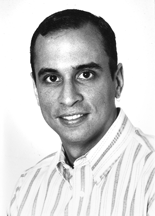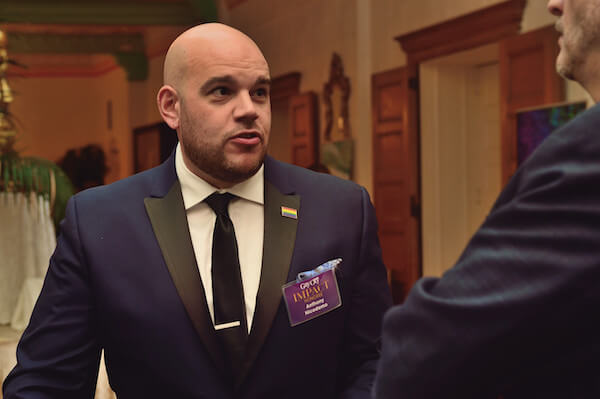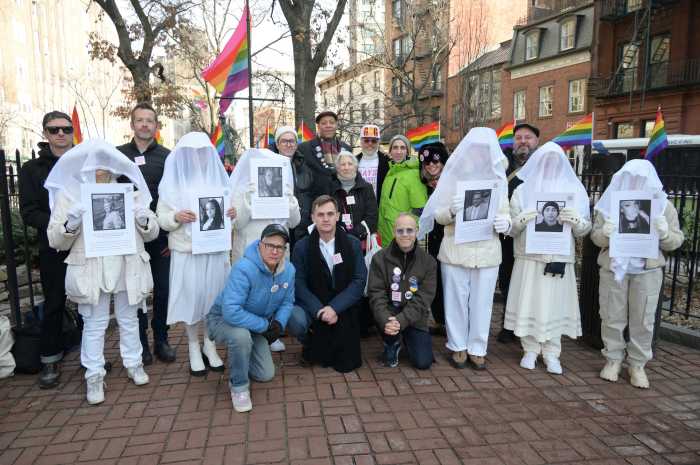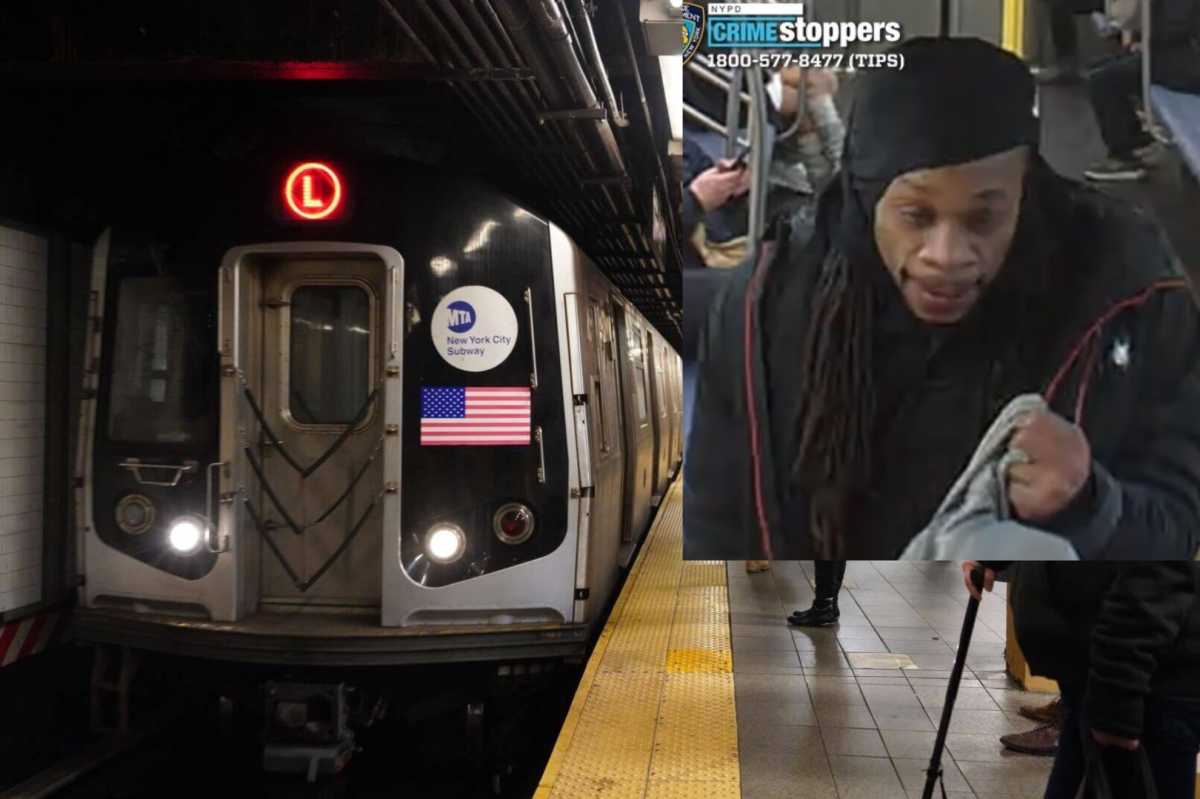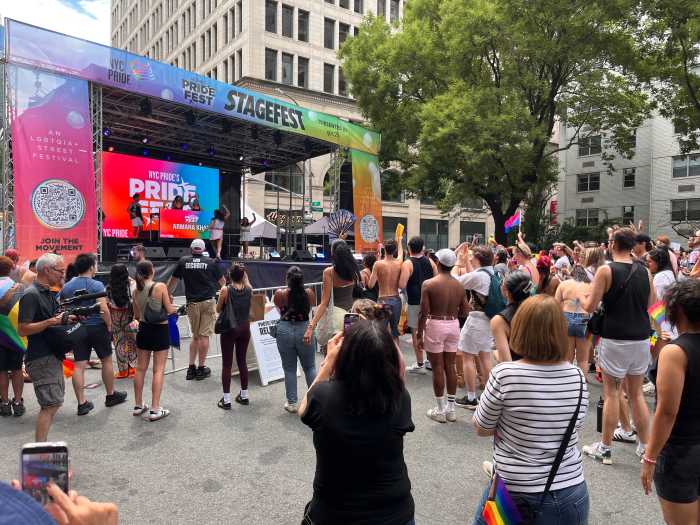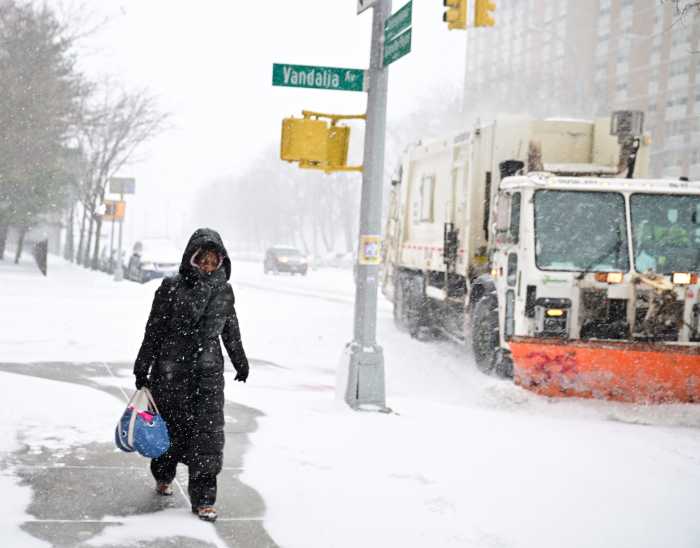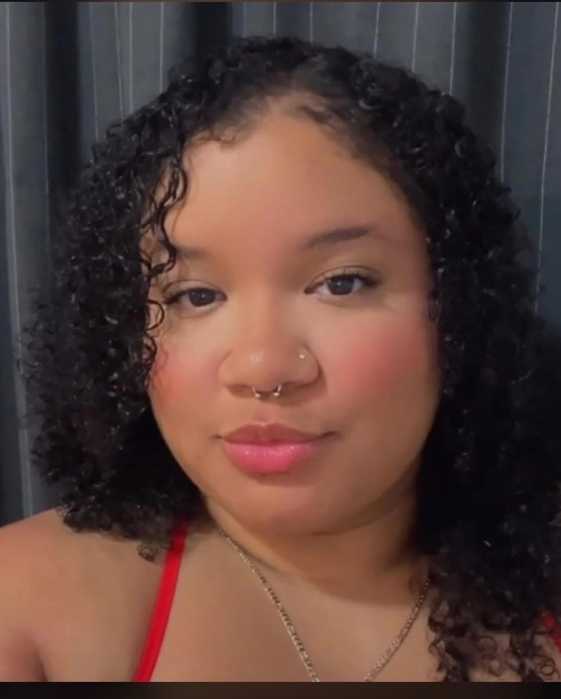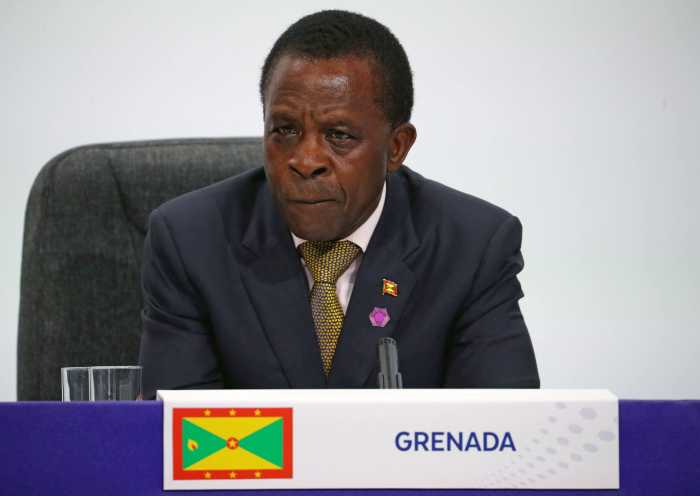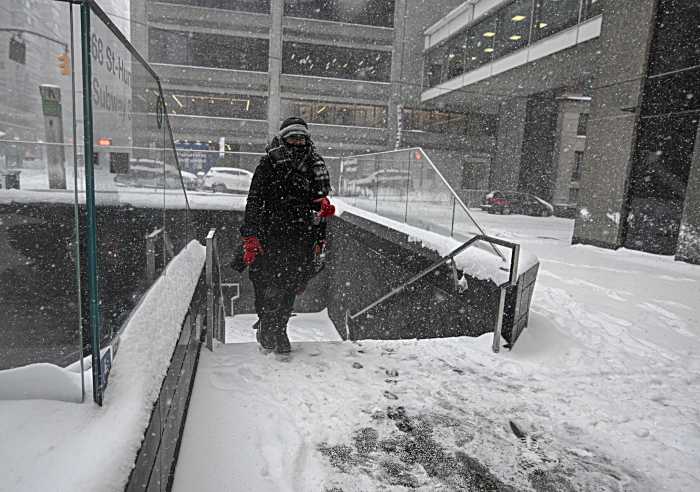Longtime AIDS activist forged versatile résumé in media and political endeavors
Born on February 21, 1965 in San Juan, Puerto Rico and raised there, Mendez lived for many years with AIDS, a condition that in recent months forced him to curtail full-time work and rely on disability. According to family members, he was struck down with heart failure in his Chelsea home at the time of his death.
Mendez first came to New York to begin his undergraduate education at New York University, but returned to Puerto Rico where he earned his B.A. in business administration and communications at La Universidad del Sagrado Corazon. By the late ‘80s, he had returned to New York to pursue a graduate degree in media studies at the New School University and take a position with Orion Pictures.
Mendez soon became with ACT UP and his career veered into social justice concerns, which alternated with media pursuits for the rest of his life. In a 2002 interview with writer and activist Sarah Schulman as part of the ACT UP Oral History project, Moises Agosto recounted the work that he, Mendez, and other Latinos in the AIDS protest group carried out in the late 1980s to form both its Spanish Communications Group and its Latino Caucus. The chief accomplishments of these activists were in translating needed information into Spanish, adding a Latino face to overall AIDS visibility in the city, and taking the battle against the disease to Puerto Rico, where they staged protests against both the government and the Catholic Church.
Leaving Orion Pictures, Mendez went to work first for the Lower East Side Family Union as an HIV outreach worker before becoming head of homeless youth programs at the Hetrick-Martin Institute. Among other social and political work he did over the next 15 years, Mendez headed up the domestic violence program at the New York City Gay and Lesbian Anti-Violence Project, did both policy and media work for the Latino Commission on AIDS, and was the communications director at the Empire State Pride Agenda.
When the Daily News made a run at publishing a bilingual edition, known as El Daily News, in the mid-1990s, Mendez was among the pioneering crew. He later worked as an opinion page editor and writer at El-Diario-La Prensa, where he was also the entertainment editor. His work there caught the eye of Sylvia Martinez, who hired him away to write for her at Latina magazine, where Mendez published the first major interview with Christina Aguilera. From there, Mendez moved to Miami to become the film editor at Univision.com, before returning to New York in late 2003.
In addition to his professional credits and his work with ACT UP, Mendez was affiliated with many other HIV, Latino, and media organizations. He served on the boards of both the Gay and Lesbian Dominican Empowerment Organization (GALDE) and the Puerto Rican Initiative to Develop Empowerment (PRIDE), lending his media savvy to both groups. He was also for a time part of the team that produced the cable television program “HoMoVisiones.”
Martinez, who hired Mendez at Latina, said, “He started off as my employee and became my friend.” She recalled that his dedication to the Latino Commission on AIDS led her to become involved for the past three years on the benefits committee for the group’s annual fundraiser, Cielo Latino, which will be held this year on May 24.
Dennis deLeon, president of the Latino Commission on AIDS, in a written statement, said, “Juan was one of the most imaginative and committed activists against homophobia and HIV/AIDS in all communities we have ever known. He was one of the best media gurus our community had.”
Francisco Lazala, who knew Mendez from both the Latino Commission and GALDE, told Gay City News, “Juan was someone that I could always rely on. He was always there for me and always gave me a shoulder to cry on whenever I needed him.”
“I loved him very much as a person,” said Luis Robles, who heads up PRIDE. “He was always very passionate and caring for the community.”
Kent Johnson, a friend of Mendez’s for more than a decade, recalled as many others did as well, his great love of film.
“Juan would rather go to the movies than eat,” Johnson recalled, adding that Mendez had thought of going back to school to learn the craft of film directing.
Maite Junco worked with Mendez at the Daily News, for which she wrote his obituary today, but knew him ever since the first grade in San Juan.
“Juan was one of the brightest kids in our class,” she recalled from those early days, adding that later, “he was in all advanced placement classes and wore these big glasses.”
Like Johnson, Junco was struck by Mendez’s love of film.
“He took me to Almodóvar movies before everyone else had heard of him,” she recalled. “I was very grateful that he pulled me out of my suburban San Juan bias.”
Father Luis Barrios, pastor of La Iglesia San Romero de Las Americas, a non-denominational church in Washington Heights, remembered that Mendez drew him, a straight Episcopal priest, into LGBT advocacy in 1990 when a transsexual youth named Jesus was murdered on Fordham Road in the Bronx, near the parish, St. Anne’s, where he was then ministering. Barrios celebrated a mass for Jesus at the church and also joined Mendez in pressing the police to classify the murder as a hate crime. Mendez later helped Barrios get a religious column—“from the left perspective”—at El Diario, which he continues to write.
Mendez’s life is being celebrated Thursday evening, May 11, from 7 to 9 p.m. at the Bronx Lesbian & Gay Health Resource Consortium at 448 East 149th Street, 3rd floor (Grand Concourse/ 149th Street stop on the 2, 4, and 5 trains). The memorial celebration follows a service earlier Thursday at Funeraria La Paz, also on East 149th Street. In line with Mendez’s wishes, his body will be cremated.
Juan Mendez is survived by his mother Virginia, his sister Jeanette, and his brother José, all of Puerto Rico, and another sister Lida Mir, who lives in Connecticut.
gaycitynews.com

